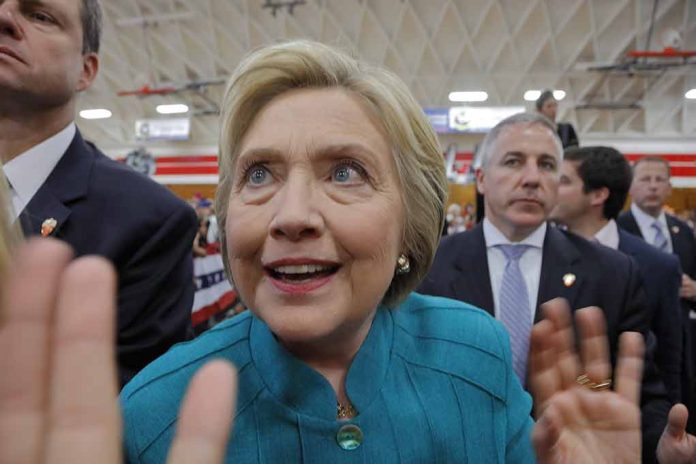
Hillary Clinton’s demand for federal intervention in social media regulation has reignited the debate over free speech on the internet.
At a Glance
- Clinton calls for national action on internet safety, focusing on the youth.
- She advocates repealing Section 230 to hold platforms accountable.
- Clinton wants criminal penalties for online election misinformation.
- She encourages removing phones from schools to enhance learning.
Stricter Social Media Regulation
Hillary Clinton has taken a firm stance on the need for tighter regulation of social media platforms to address content moderation issues. She believes federal oversight is essential to manage the content and protect users, particularly children, from potential online hazards. Clinton has praised state efforts, like those in California and New York, but insists that comprehensive federal legislation is necessary to ensure consistent and effective regulation across the nation.
Hillary Clinton: If Social Media Platforms Don't Have To Moderate Content, "We Lose Total Control"
Read more – https://t.co/BdMv3wHVfP
"We should be repealing something called Section 230, which gave platforms on the internet immunity because they were thought to be just… pic.twitter.com/Q6q4yMjfvg
— RCP Video (@rcpvideo) October 6, 2024
Clinton has specifically targeted Section 230 of the Communications Decency Act, which shields internet platforms from liability for user-generated content. She supports repealing this provision, arguing that it gave companies undue immunity. Emphasizing accountability, Clinton seeks to implement “guardrails” for content moderation. Her proposals extend to imposing civil or criminal penalties on individuals who manipulate online election information, with the 2016 elections being a key reference point in her argument.
Congress Criticized
Clinton has voiced significant criticism towards Congress, describing it as dysfunctional when it comes to tackling online threats to children. She underscores the urgency for national action, lamenting the lack of substantial progress at the federal level. Her new book, “Something Lost and Something Gained,” delves into social media’s adverse effects on children’s mental health, further pressing the need for legislative reform. “We need national action and sadly, our Congress has been dysfunctional when it comes to addressing these threats to our children.” stated Hillary Clinton
Beyond legislative efforts, Clinton also suggests proactive measures on a more localized level, such as prohibiting cellphone use in schools. She believes this policy would significantly enhance student concentration and social development, noting some schools have already successfully implemented such changes.
👇Hillary Clinton calls for social media censorship via lifting their federal umbrella protection from lawsuit liability. Free speech & constitutional experts say the solution to bad speech is more free speech, not censorship. #HillaryClinton #Censorship #socialmedia @FoxNews… https://t.co/O4zzWsr718
— Elizabeth MacDonald (@LizMacDonaldFOX) October 5, 2024
Free Speech Concerns
While Clinton’s proposals aim to safeguard internet users, they have sparked controversy over potential implications for free speech. Critics, including Tulsi Gabbard, argue that Clinton’s approach threatens the First Amendment, likening her stance to that of Kamala Harris. Gabbard has accused Clinton of seeking “total control” under the guise of moderation—a point of contention that adds complexity to the ongoing dialogue surrounding social media regulation and free speech.
“We should be, in my view, repealing something called section 230, which gave platforms on the internet immunity because they were thought to be just pass-throughs, that they shouldn’t be judged for the content that is posted.” Hillary Clinton stated.
As debates rage over these legislative and regulatory proposals, it remains to be seen how the federal government will navigate the balance between safety, accountability, and free speech in the digital age.














